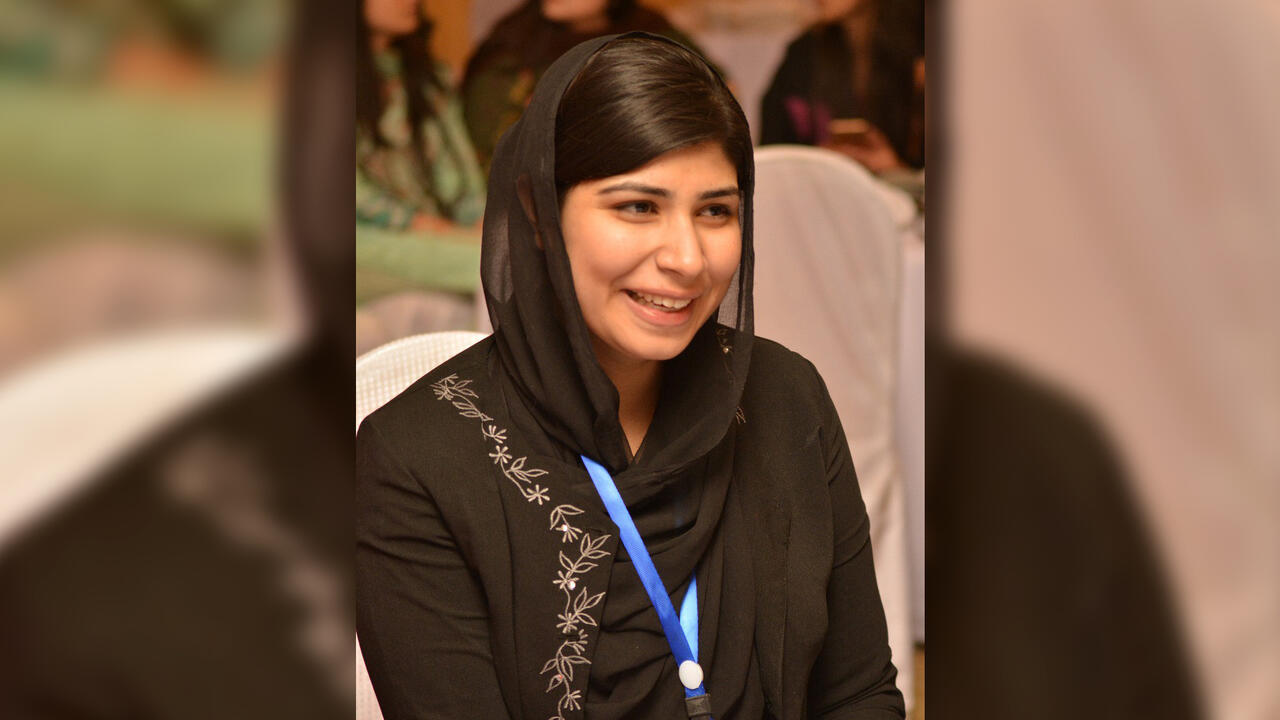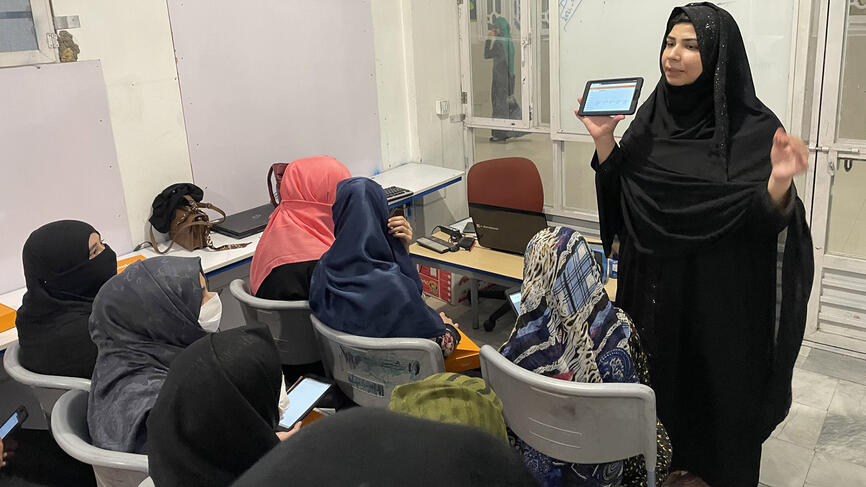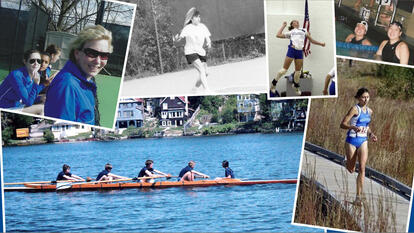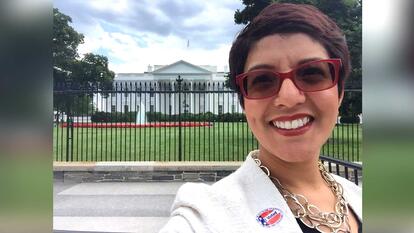
In Pashtana Durrani’s Afghanistan, No Woman Will Be Left Behind
Pashtana Durrani is on a mission to improve the lives of women and girls in her home country of Afghanistan. In 2018 she founded LEARN Afghanistan, a nonprofit that works to expand educational opportunities in the country, and has educated thousands of Afghan boys, girls, and women, and trained dozens of teachers in digital literacy. At its peak, LEARN was operating 18 schools in cities and rural regions across Afghanistan, but when the Taliban retook the country last fall, the organization was forced to shutter almost all of its programs and shift its activities underground. Durrani went into hiding, and as threats to her safety increased, she decided to come to the United States.
However, Durrani does not plan to let the recent return of the Taliban extinguish her vision for her homeland as a place where all are free to learn and pursue their ambitions.
“Today, [the Taliban] are in power,” Durrani says. “But they’ll probably lose it. That’s how governments work in Afghanistan. I’m hopeful they will lose power again.”
In November, Durrani arrived at Wellesley College as a visiting fellow at the Wellesley Centers for Women. During her two-year appointment, she will research ways to help Afghan women and girls pursue education and support the health of Afghan mothers and babies.
We all have one of those moments of clarity. Mine was when my cousin asked me if she could have the same life that I did. I’m not saying my life was perfect, but it was better, and she, like every woman in Afghanistan, deserved it.
Pashtana Durrani
The Path to LEARN
Durrani grew up in a family of educators, and she considers herself a lifelong learner and avid reader. As a child, she especially enjoyed biographies. “I always wanted to know what gives all these amazing icons the courage to be the people that they are,” she says. “I always wanted to know what inspired them.” She was equally interested in history, a passion her father helped foster in her when she was growing up in a displaced persons camp in Pakistan, where she was born after her family left Kandahar to distance themselves from the civil war and emerging Taliban control of the country. “I think the best memory of my childhood would be my dad getting me books from Afghanistan to teach me pashto and dari, my own native languages, and learning history, culture, and everything amazing about Afghanistan,” Durrani says.
As a teenager, Durrani aspired to become a diplomat, but that changed during a visit to family in Kandahar. There, she saw firsthand how unsafe it was for girls to travel to school. She also saw how much a younger cousin wanted to learn how to use a computer, and she saw other cousins teaching themselves Hindi by watching television. She realized that there was “a huge need for digital literacy,” particularly in rural areas with almost no access to the internet. Durrani returned home determined to help women and girls educate themselves.
“My cousin gave me a path to follow,” Durrani says. “We all have one of those moments of clarity. Mine was when my cousin asked me if she could have the same life that I did. I’m not saying my life was perfect, but it was better, and she, like every woman in Afghanistan, deserved it.”
Durrani founded LEARN to make education available to girls who don’t have access to schools, and to provide access to technological education through community schools in underserved and impoverished areas. She hopes, eventually, to host a school in each of Afghanistan’s 34 provinces, with each one serving 100 girls and women for a 12-month period.

Between its inception in 2018 and last fall, LEARN provided resources, professional training, mentoring, and access to technology to more than 7,000 Afghan children and teenagers, as well as classes and lesson plans for subjects as wide-ranging as biophysics, chemistry, graphic design, website development, and coding. The organization has also developed tools that enable students to learn outside of school, including an app that lets them access games, books, and videos when they can connect to the internet and continue their lessons later, offline. They also maintain a Facebook page they regularly update with programs and lesson plans for anyone to access.
Durrani admits that while she didn’t envision herself as the leader of an educational movement for women and girls, it makes a certain sense. Her mother and aunt were teachers in her childhood school, and her father, an Afghan tribal leader, often spoke in their community about the importance of girls’ education.
“When I was a child, my father insisted on taking me to school,” Durrani says. “When people asked him why he took women in his car, he would raise his voice at them and say openly that I was his daughter and that there was no shame in taking me to school.”
Durrani sees elements of her father’s courage and her mother’s dedication in her advocacy work. “I never thought I would take up the path of both of my parents,” she says. “My mother taught and my father led. Today, I do both. Now I think children are the mirror of their parents’ actions. I still think to myself that the fact I am loud and I talk with a loud voice is because of my mother, and the fact that I’m always going to place aside my differences with someone to work on a bigger picture is because of my father. I think it’s less about masculinity and femininity. It’s more about taking the good and putting it to use for any human.
“My father was a visionary, and he informed my path for Afghanistan’s education program, but it was my mother who told me quitting was never an option, and that big goals mean I have to put in more hours to do the work that I do.”
My mother taught and my father led. Today, I do both.
Pashtana Durrani
The Return of the Taliban
When the Taliban swept back into power, Durrani was forced to pause her own studies at the American University of Afghanistan, in Kabul, and go into hiding. LEARN pivoted from operating 18 schools in the open to just two, with morning and evening classes for two separate cohorts of 100 girls each, in undisclosed locations.
Durrani remained in Afghanistan during the initial weeks of Taliban control, though her university was closed, but she left after regional security services told her people were plotting to attack her.
“I needed to put my education first,” Durrani says. “If I am well educated, I can serve my country and my people better. I also literally made intelligence services anxious, and people wanted me dead or in exile. So I chose exile.”
At the moment, Durrani is settling into her life in the United States and her new home at Wellesley College. She is working remotely to finish her degree at the American University, and through her position at the Wellesley Centers for Women she is preparing to research better ways to distribute humanitarian aid and strategies for mitigating the corruption that she has frequently witnessed in the humanitarian aid industry.
“I want to study the international aid cycle and how it exists within Afghanistan, and how it has used Afghans to get more funding and do very little in [the country],” Durrani says.
Durrani is also familiarizing herself with Wellesley’s campus and finding ways to maintain her daily routines. She is extremely active on Twitter and Instagram, through which she frequently connects with her international network of friends, sharing snapshots of her new life, including the green tea she brews in her dorm room and her current favorite Billie Eilish songs. As the humanitarian crisis in Afghanistan worsens through the harsh winter, Durrani is also organizing meal programs for mothers and infants, and working on opening schools in Takhar, Helmand, Faryab, Mazar, and Nangarhar. She is also coordinating aid for families who survived a recent flood in Kandahar, and for families suffering displacement in Bamyan.
In addition to her aid work, Durrani is planning her own podcast series that will focus on the variables that affect women’s education, and the realities of women’s health and literacy gaps in developing countries. And as ever, she is reading.
“I’m reading a lot these days,” Durrani said (she recently finished Untamed, by Glennon Doyle). “I’m working on my anxiety and my fear of socialization. I’m trying to reconnect with my faith. After all, I’m 24 and I need to center myself and take care of my mental and physical health. So I enjoy taking long walks along Lake Waban, and I pray, and I read. The long walks help me clear my mind.”



